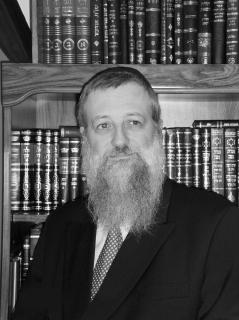“The Chanukah story is really an anti-sports story,” Jeffrey Gurock, professor of American Jewish history at Yeshiva University, told the Chronicle in a telephone interview.
The original Olympic games started in ancient Greece as an expression of that culture’s idealization of the human body, and it was closely associated with the Greek polytheistic religion.
According to the two books of Maccabees, one of the things the Greek-culture Seleucid Empire and its Jewish collaborators did to provoke the Jewish revolt was to establish a Greek-style gymnasium in Jerusalem.
The religious Jews of Judea objected to Greek athletics because of its links to Greek religion, because of its public nudity that violated Jewish laws of modesty, but also to some extent because Judaism emphasizes the mind and spirit over the body.
“The Hellenists were those Jews who strayed from basic Jewish belief to become involved in Greek culture, which involves body worship,” said Rabbi Mendel Senderovic, dean of the Milwaukee Kollel-Center for Jewish Studies. “Your mainstream Jews of more spiritual leaning did not involve themselves in that.”
“In Jewish culture and tradition, the ideal Jewish male is the rabbi, the teacher, the scholar,” and not the athlete, said Gurock.
All of which makes it ironic that today the name of the Maccabees often gets associated with Jewish athletic teams and events.
Not only are Maccabiah Games modeled on the Olympics, held in Israel every four years; but Yeshiva University, a primary intellectual center of Modern Orthodox Judaism in the U.S., calls its own sports teams the Maccabees — including the men’s basketball team of which Gurock has been an “off and on” assistant coach. (“We should really call ourselves the non- or anti-Maccabees,” Gurock quipped.)
So what happened? The opening of the 2008 Olympic Games in China this week provides an apropos moment to examine the attitudes Judaism and Jewish cultures have exhibited to sports and athletics.
‘With the foot-runners’
The Hebrew Bible contains some scattered and positive references to sports. Psalm 19:6 compares the sun to “a hero eager to run his course.”
The prophet Jeremiah states, “If you race with the foot-runners and they exhaust you, how then can you compete with horses?” (12:5) — from which one can infer that “foot running races” existed in ancient Israel.
And the prophet Isaiah says that God will “spread out his hands … as a swimmer spreads out his hands to swim” (25:11), suggesting that too was a common activity.
By the time of the Talmud and the Middle Ages, however, Jewish culture developed an attitude that while some athletic activity is permitted, it should not be an end in itself.
“We are instructed by the Torah to take good care of our bodies,” said Senderovic. “Medicine tells us that a regimen of exercise is important for preserving our health.”
Rebecca Alpert is associate professor of religion and women’s studies at Temple University and a feminist who has written about Judaism and lesbianism. She is also interested in Jews in U.S. sports, especially baseball, and taught a class two years ago on “Jews, America and Sports.”
Alpert, who is also a Reconstructionist rabbi, said in a telephone interview that the great medieval rabbi-philosopher-physician Maimonides “said a healthy body is as important as a healthy mind; they went together in the capacity to worship properly.”
Meanwhile, some of the European countries actually prohibited Jews from participating in sports; and the enforced poverty Jews had to endure in places like Eastern Europe made them physically underdeveloped.
So developed a stereotype of Jews as weaklings that became part of Jewish and anti-Semitic folklore — and a problem that modernizing Jews believed had to be solved.
Therefore, in the late 19th and early 20th centuries, Jews began striving to participate in sports in Europe — and if European sports clubs wouldn’t allow Jews to join, Jews started their own.
Moreover, the Zionist movement not only wanted to reclaim the land of Israel; it also “wanted to change the way Jews were perceived,” including the perception of physical weakness, said Alpert. “There was a whole strain in Zionism of ‘muscular Judaism.’”
And in the United States, where “sports are all pervasive” in the culture, said Gurock, “to be an American is to be intrigued and involved” with sports. Therefore, interest in sports became part of the Americanizing process for Jewish immigrants.
Both Gurock and Alpert are interested in this phenomenon. Gurock is author of the 2005 book “Judaism’s Encounter with American Sports” (Indiana University Press). Alpert is working on a book about Jews involved in baseball’s “Negro leagues.”
“Sports really illuminates the American Jewish story,” said Alpert. “The real goal of the [Jews, America and Sports] course was to show how you can look at significant issues in American Jewish life and history through sports.”
Today, Jews are active in sports; have sports heroes from pitcher Sandy Koufax to nine-time Olympic gold medalist swimmer Mark Spitz to 2004 Israeli Olympic gold medal wind surfer Gal Fridman; and participate in athletics and exercise. Gurock himself is a 14-time marathoner.
Orthodox yeshivas like the Wisconsin Institute for Torah Study provide opportunities for playing sports and for exercising to their students.
“There’s real appreciation for the fact that in youngsters … diversion from studies is necessary,” said Senderovic. “A good game of basketball is a kosher diversion.”
And there may not be any hesitation over serious pursuit of sports as an end in themselves among younger Jews.
Alpert recalled that of her 20 students in the “Jews, America and Sports” class, one was a Jewish young man who didn’t finish the course because he was called up for a minor league baseball team. “For him, it was important,” Alpert said.



